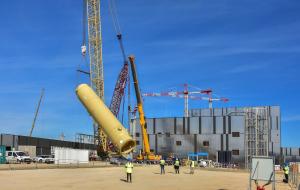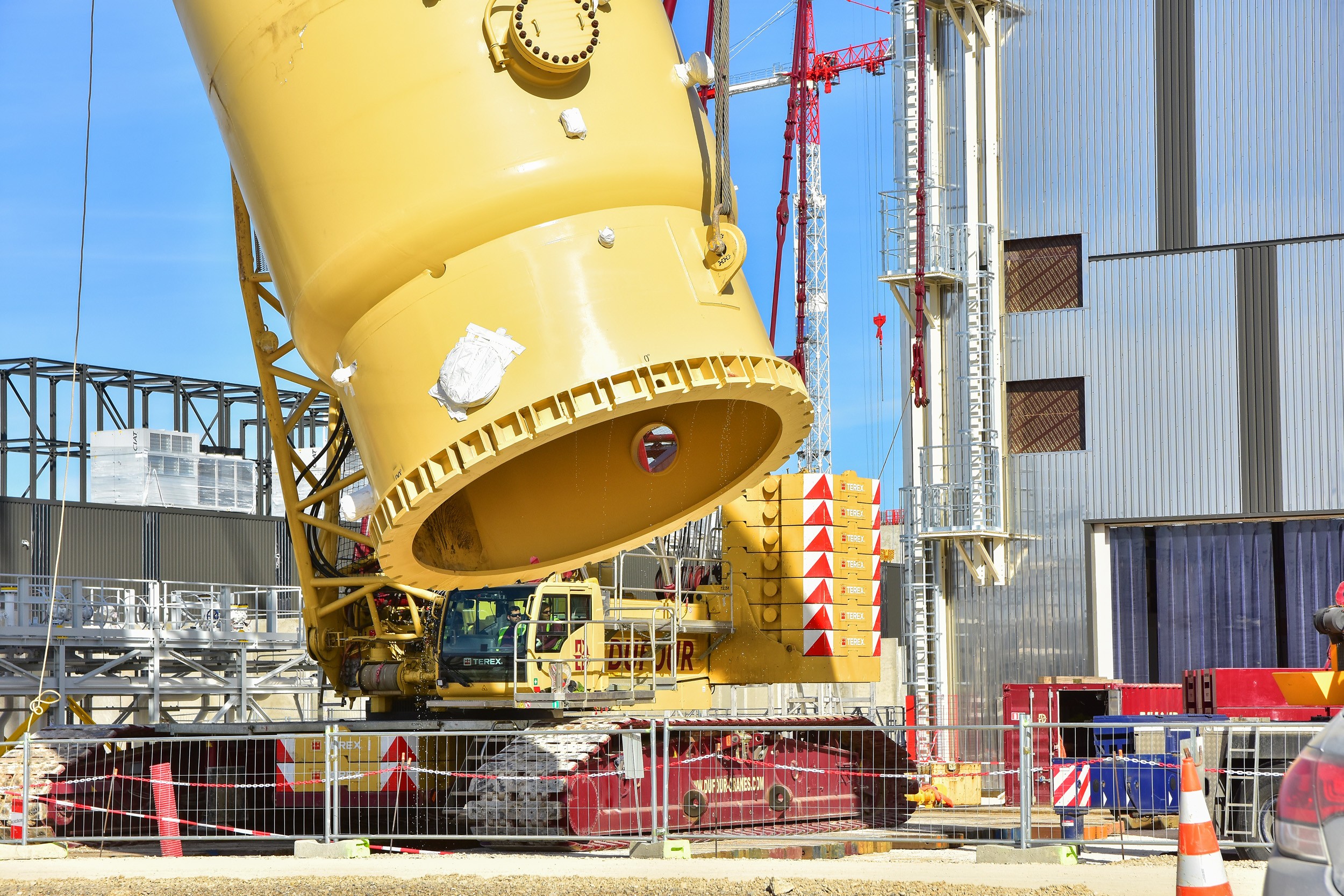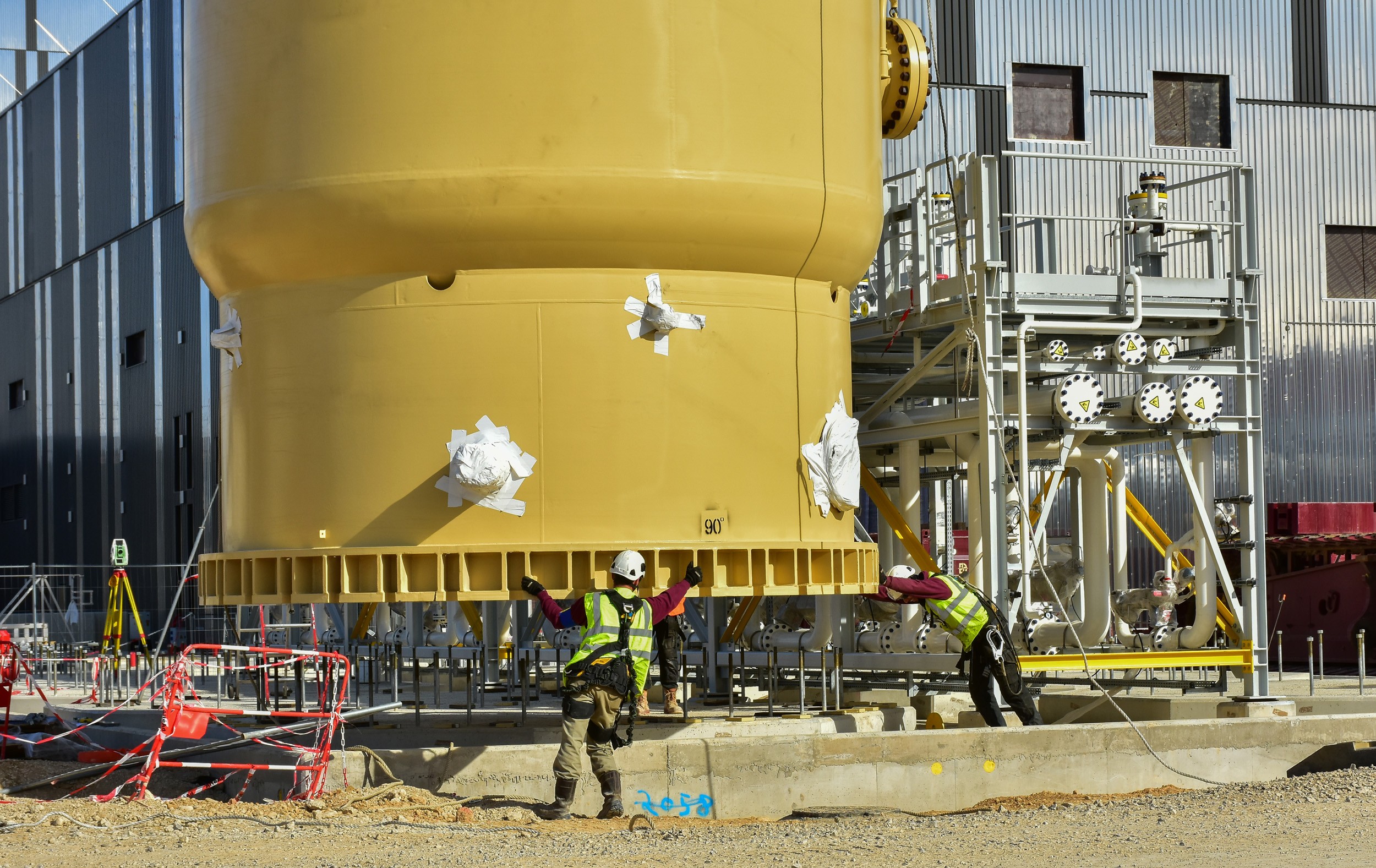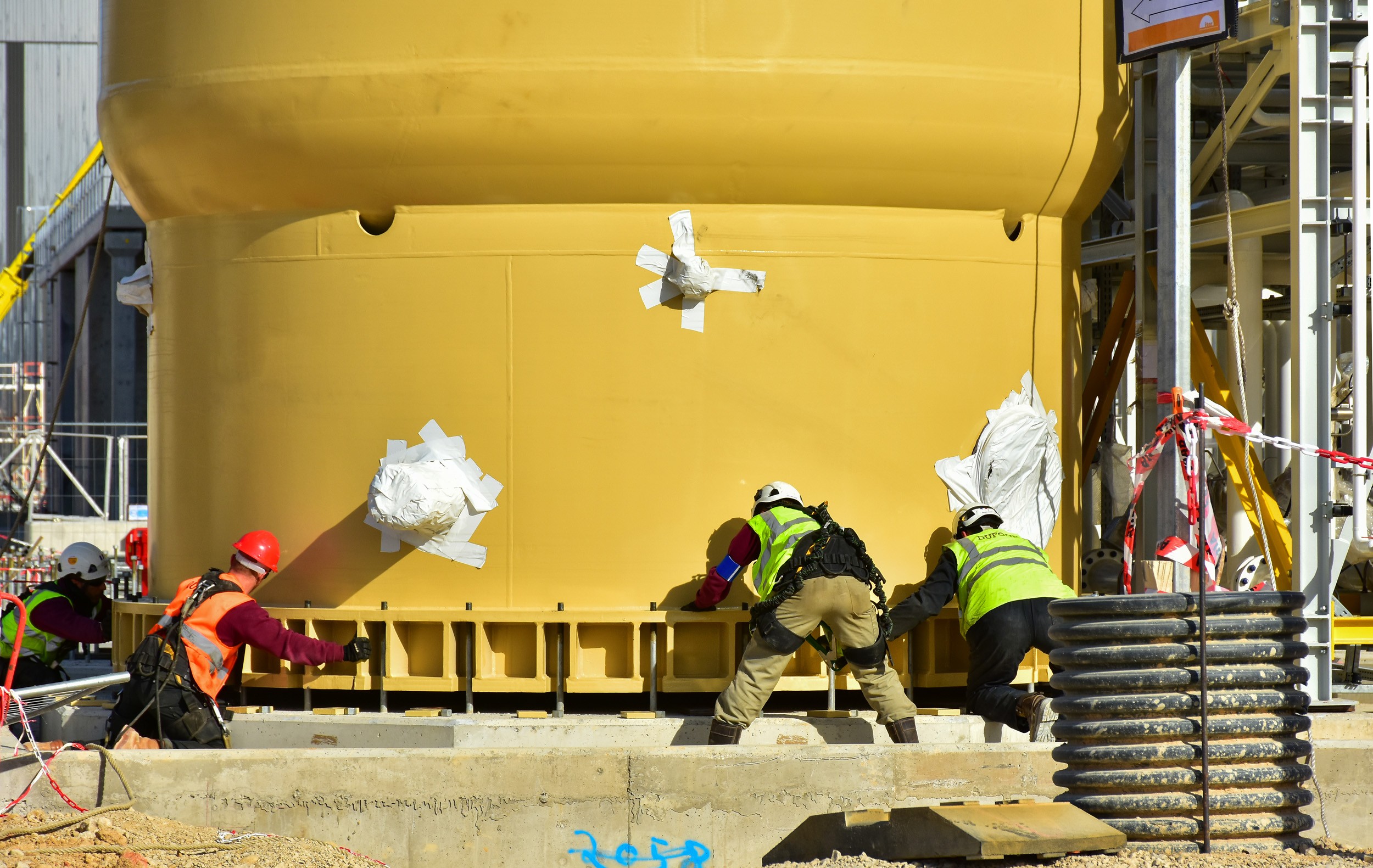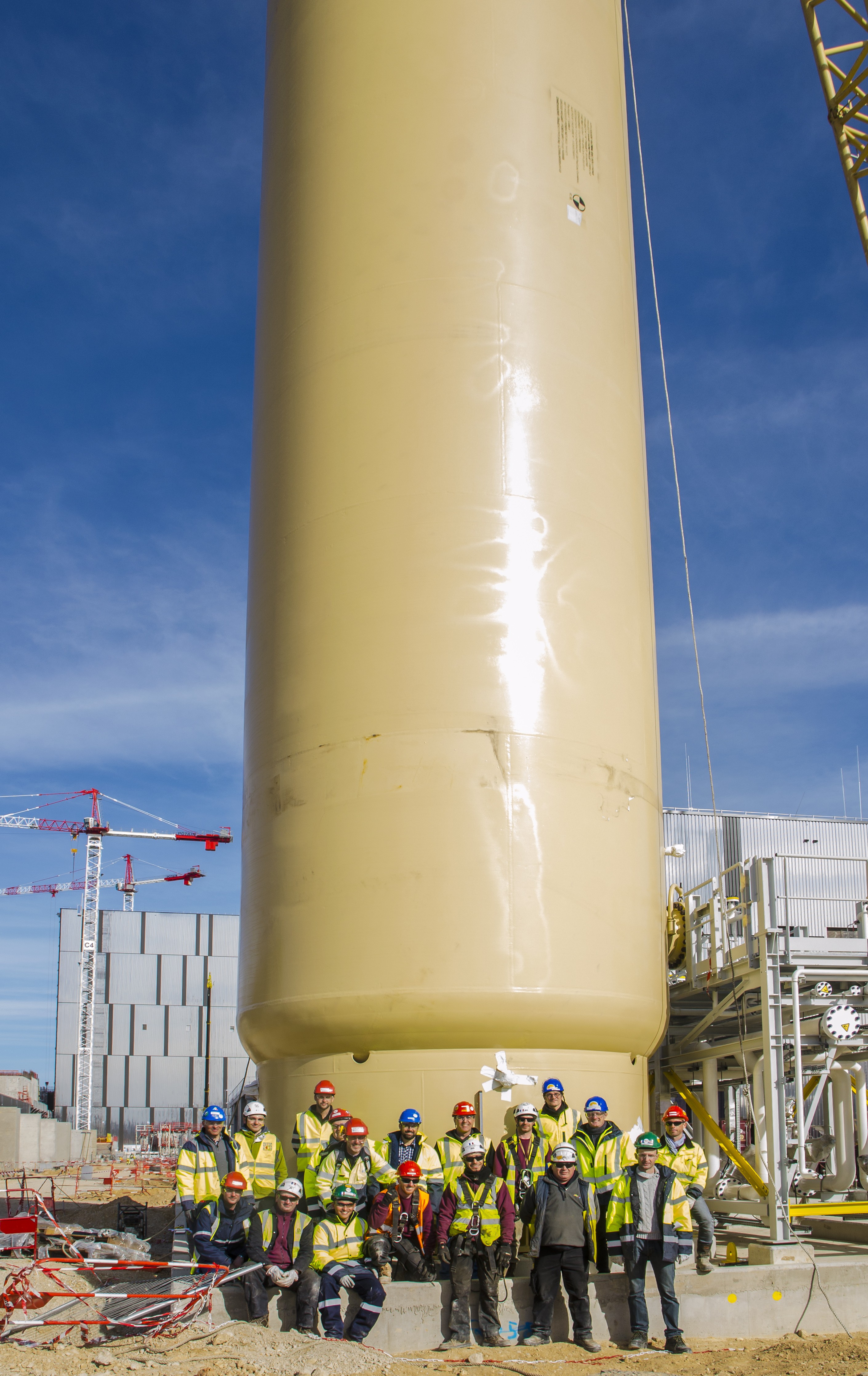Cryoplant
A vertical displacement event
19 Feb 2018
Three vertical storage tanks have been installed since last week outside of the cryoplant. The operation requires two powerful cranes working in tandem but also the strength of many arms ...
Installed vertically because of space constraints, six identical tanks will store 380 cubic metres of gaseous helium each at a pressure of 22 bars.
There are 36 semicircular openings at the base of each tank, corresponding to 36 steel rods deeply anchored into the 2.5-metre thick concrete platforms that have been built to receive them. Each tank stands 20 metres high and weighs 150 tonnes.
Read a full report on the European Domestic Agency website.
As the crawler crane seize a tank by its "ears" (two cylindrical protrusions called "trunnions" located at the upper end of the component), and as the telescopic crane slowly lifts its lower end, one wonders how the required alignment will be achieved.
One hour later, the question can be answered. The crawler crane positions the tank vertically and leaves it hovering a few centimetres above the rods. Three men weigh in with all their strength on the bottom rim: a few pushes to the right, a few pulls to the left, a tilt inward and a small rotational movement and everything falls into alignment. The crane operator can then carefully lower the tank so that all 36 rods slide into their corresponding holes, ready to be bolted.
Last Wednesday's operation was a spectacular first. By the end of the week it was routine and as of today's Newsline, three tanks are in place.
Installed vertically because of space constraints, the six tanks, procured by Europe, will each store 380 cubic metres of gaseous helium at a pressure of 22 bars. They will act as buffers for certain phases of operations and also as storage when ITER is not running.
Read a full report on the European Domestic Agency website.

